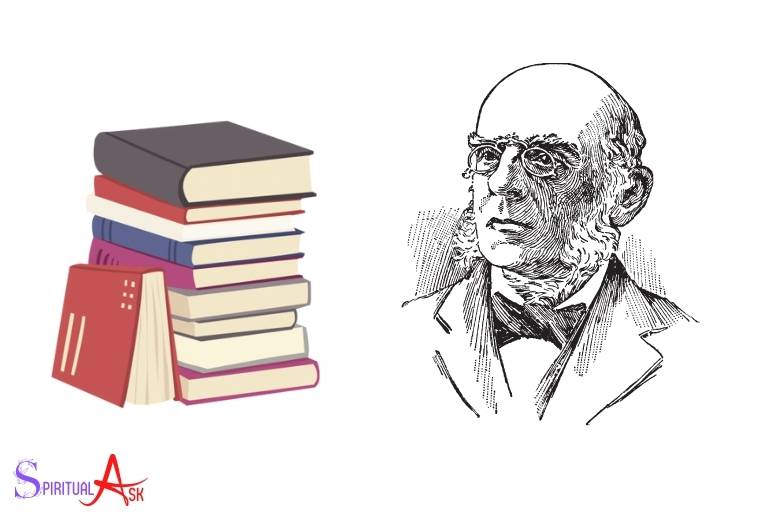What was Timothy’s Spiritual Gift: Pastoral Leadership!
Timothy’s spiritual gift was pastoral leadership and teaching. Timothy, a young leader in the early Christian church, was mentored by the Apostle Paul.
Paul identified Timothy’s spiritual gift as pastoral leadership and teaching, which Timothy used to guide and edify the believers in various churches.
As a young leader, Timothy faced the challenge of being considered inexperienced; however, the Apostle Paul encouraged him to focus on his spiritual gift of pastoral leadership and teaching.
Timothy’s gift allowed him to effectively guide the early believers and remind them of essential teachings in their faith. Timothy’s spiritual gift was crucial in the early days of the Christian church as it helped to establish strong foundations for the growth of its members.

Key Takeaway
8 Timothy’s Spiritual Gift with Bible Verse Reference:
| Spiritual Gift | Description | Bible Verse Reference |
| Encouragement | Timothy had the ability to encourage and uplift people around him, providing support and motivation in their faith journey. | 1 Thessalonians 3:2 |
| Preaching | As a disciple of Paul, Timothy was trained to preach and teach the word of God in an effective manner. | 2 Timothy 1:11 |
| Leadership | Timothy was entrusted with the responsibility of overseeing churches and guiding their spiritual growth. | 1 Timothy 1:3 |
| Discernment | Timothy demonstrated the ability to distinguish between truth and falsehood and was skilled in helping others do the same. | 1 Timothy 4:7 |
| Evangelism | As a companion of Paul, Timothy played an active role in spreading the gospel and was involved in founding churches. | Acts 16:1-5 |
| Faith | Timothy displayed strong faith in God and in the ministry of the apostle Paul. | 2 Timothy 1:5 |
| Dedication | Timothy was known for his unwavering commitment to the ministry, even in the face of hardships and difficulties. | Philippians 2:20-22 |
Five Facts About: Timothy’s Spiritual Gift
Timothy’s Background and Ministry
Timothy’s ministry, deeply rooted in his diverse cultural background, exemplifies the early Christian mission’s adaptive and inclusive nature.

You observe that his bi-cultural heritage, with a Jewish mother and a Greek father, positioned him uniquely to bridge cultural divides, facilitating the spread of Christianity across different ethnic groups.
Timothy’s mentorship under Paul further honed his capabilities, embodying the spiritual gift of teaching and leadership.
Analyzing his role, you discern that Timothy’s effectiveness in ministry was amplified by his ability to navigate various social contexts, which was essential for the nascent church’s expansion.
His ministry underscores the importance of cultural adaptability and the embracing of diversity within the framework of early Christian evangelism.
Paul’s Letters to Timothy
In Paul’s epistles to Timothy, we encounter foundational texts that not only offer personal guidance to a young leader but also provide instruction relevant to the broader Christian community.

Through critical examination, you’ll notice that these letters, First and Second Timothy, are rich with advice on church leadership and personal conduct.
| Aspect of Guidance | Implication for Timothy and the Community |
|---|---|
| Leadership Qualities | A blueprint for selecting church leaders |
| Sound Doctrine | A call to uphold and spread core teachings |
| Personal Discipline | Exhortation to maintain strong spiritual practices |
| Public Service | Instructions on caring for various groups in the community |
Analyzing these epistles, it’s clear that Paul’s intent was multifaceted, addressing both the immediate needs of Timothy and the long-term health of the Christian community.
Identifying Spiritual Gifts

Understanding the nature and identification of spiritual gifts is essential for any Christian community’s growth and individual fulfillment.
Spiritual gifts are special abilities bestowed by the Holy Spirit, intended to strengthen the church and glorify God. You’ll find that identifying these gifts often begins with self-reflection and prayer, seeking to understand how God has uniquely equipped you for service.
Analyzing scripture provides a framework for recognizing various gifts. Passages such as Romans 12:6-8, 1 Corinthians 12:4-11, and Ephesians 4:11-13 enumerate specific gifts and their functions within the body of Christ.
By comparing your own inclinations and abilities with these scriptural examples, you can discern which gifts you may possess. Engaging in diverse ministries also offers practical opportunities to discover and develop your spiritual gifts.
The Gift of Leadership

The gift of leadership empowers certain individuals to steer and uplift the Christian community with vision and direction. This spiritual endowment is not merely about holding a position; it’s about embodying the qualities that foster guidance and growth within the church.
Consider the following characteristics of effective spiritual leaders:
- Visionary Thinking: You’re able to discern God’s purpose for the community and communicate it compellingly.
- Decisiveness: You make informed decisions confidently, trusting in divine wisdom.
- Integrity: You’re a moral compass, consistently displaying Christ-like behavior.
- Inspirational Influence: You motivate others to engage in the mission, fostering a sense of shared purpose.
These traits are crucial in nurturing a spiritually healthy and dynamic congregation. As a leader, you’re called to be an exemplar of these attributes.
Timothy’s Legacy and Impact
Reflecting on such leadership qualities, one can observe how Timothy’s own spiritual gift of leadership left an indelible mark on the early Christian church, shaping its growth and solidifying its foundation.

His legacy, documented in the New Testament through the pastoral epistles, reveals a figure of considerable influence, whose spiritual acumen and administrative abilities were pivotal in the dissemination of the nascent faith.
Timothy’s role as a delegate of the Apostle Paul, coupled with his pastoral duties, underscores a multifaceted impact both as a stabilizing agent in fledgling communities and as a conduit for Pauline theology.
His exemplary stewardship, evidenced through his perseverance amidst challenges, provides a template for ecclesiastical leadership that has resonated through subsequent generations of Christian thought and practice.
How Can Pastoral Leadership be Nurtured in Individuals with Spiritual Gifts?
Nurturing pastoral leadership in individuals with spiritual gifts begins with recognizing spiritual gifts and understanding how these gifts align with pastoral roles.
Here’s how to cultivate these leadership qualities:
- Identification: Acknowledge and affirm the spiritual gifts in individuals, such as teaching, leadership, wisdom, and encouragement, which are essential for pastoral ministry.
- Mentorship: Pair potential leaders with experienced pastors for guidance, sharing of wisdom, and practical ministry experience.
- Training: Offer formal theological education and leadership training to equip them with the knowledge and skills needed for effective pastoral care.
- Opportunities for Service: Provide platforms within the church for aspiring pastors to exercise their gifts and leadership abilities.
Empowering individuals with spiritual gifts for pastoral leadership involves intentional mentorship, education, and opportunities to serve, underpinned by a commitment to recognizing spiritual gifts and calling. Empowering individuals with spiritual gifts for pastoral leadership involves intentional mentorship, education, and opportunities to serve, underpinned by a commitment to recognizing spiritual gifts and calling. This process often includes fostering an environment where diverse talents are nurtured and the unique aspects of shepherding as a spiritual gift are affirmed and cultivated. By providing guidance and real-life ministry experiences, emerging leaders can grow in confidence as they step into their roles, equipped to serve with humility and purpose.
By investing in individuals with these gifts, the church can develop a strong, spiritually gifted leadership that is well-equipped to shepherd the congregation with wisdom, care, and dedication.
Conclusion
As you reflect on Timothy’s journey, consider how his spiritual gift of leadership, likened to a beacon guiding ships through treacherous waters, shaped early Christianity.
Your analysis, like an archaeologist sifting through ancient sands, uncovers the timeless influence of such gifts.
Timothy’s legacy, therefore, isn’t just a tale of bygone days; it’s a lasting testament to the power of spiritual guidance in steering the faithful through the ages.
FAQ On What Was Timothy’s Spiritual Gift
What Is A Spiritual Gift?
A spiritual gift is a special ability given by the holy spirit to a christian to serve god and help others.
How Do We Identify Spiritual Gifts?
We can identify spiritual gifts through prayer, self-reflection, and seeking feedback from others.
What Are Some Examples Of Spiritual Gifts?
Some examples of spiritual gifts include leadership, teaching, hospitality, encouragement, and healing.
Was Timothy A Recipient Of Spiritual Gifts?
Yes, timothy was a recipient of spiritual gifts, as mentioned in 1 timothy 4:14 where paul encourages him to use his gift.






